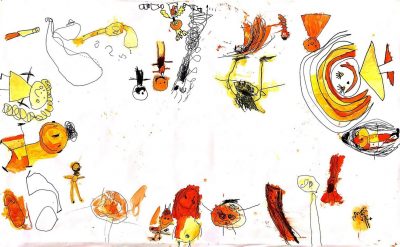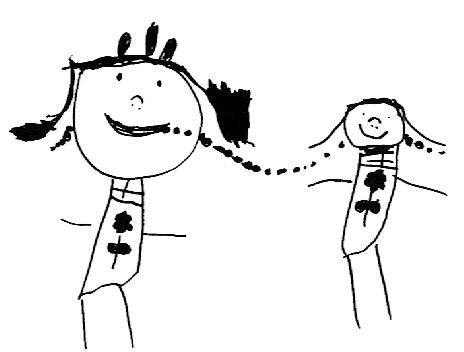
The public statement made by REAIE in response to the global call for respectful relationships continues to be the catalyst for the current pedagogical direction that REAIE is taking. In this blog, we have chosen the concept of democracy to explore as is it critical to honour our commitment to “stand in solidarity with Australia’s First Peoples and advocate to uphold human rights for all citizens” (REAIE, 2020).
The contemporary iterations of democracy sit on the shoulders of progressive thinkers like John Dewey. Dewey wrote an article in 1916 titled, Democracy and Education, in which democracy is a central value; in fact, it is the practice and purpose of education. He famously stated that “democracy needs to be reborn in each generation and education is its midwife” (Dewey). So, what is a democracy, and how is it lived in educational settings? We turn to Peter Moss, a more contemporary thinker who defines democracy as a “multidimensional concept that can be applied at many levels, from the national government to nursery; it is both a way of living and relating” (Moss cited in Miller and Hevey, 2012, p.93). Dewey also believed that all those who are affected by social institutions must have a share in producing and managing them. This blog will explore the principle and concept of ‘everyday democracy’. What practices are intentionally valued as democratic? We will use three strategies that enable democracy to elaborate on: dialogue, documentation and morning meetings.
Dialogue is a strategy of participation that enables democracy as a practice through encounters. Paola Cagliari talks about the importance of dialogue as communication when she says; “Encounters foster dialogue between different roles, different ideas, different cultures and negotiation leading towards building together…everyone is an active subject each contributing complementary and necessary knowledge (Cagliari et al., 2004, p.28). Everyday democracy is lived through dialogue and conversations when the barriers of autocratic leadership, hierarchy, power and control and time are eliminated. Dialogue in Reggio Emilia is not seen as a practice to separate and create disagreement, rather it is seen as a practice that celebrates subjectivity; a common wealth that generates solutions.
Loris Malaguzzi saw pedagogical documentation as a commitment to democracy and participation, another concept and fundamental value in Reggio Emilia. Through documentation, children’s learning processes and educational practices are made visible and offers the possibility and opportunity for discussion. In Reggio Emilia, learning is not referenced in the paradigm of ‘outcomes’ but is observed in the context of relationships with and between others. Learning is also observed in conceptual growth, when educators take the time to listen to children, document their ideas and theories rather than just taking photos of them. Their ideas, theories and metaphors are analysed by educators and shared with families to invite exchange. By enabling active exchange with families, educational settings become places of co-construction and a place of democracy by inviting multiple ideas, debates and perspectives, in other words, subjectivity.
Morning meetings are another strategy and practice that enables everyday democracy. Morning meetings occur when time is organised to bring a group of children together. To gather together for a morning meeting creates a forum for participation, where the intentions of the teachers are shared and welcomed alongside the suggestions from the teacher. The role of the teacher is to “act as the orchestra director and to hold the threads together” (Rabotti, 2018). This strategy and practice are very different to the practices in many educational settings in Australia where often children are only brought together for a story or a song. Instead, morning meetings or assembly (an ancient cultural Roman tradition) as this time is referred to in Reggio Emilia, are intentionally organised as a time to listen, discuss, exchange ideas and perspectives and negotiate. Carla Rinaldi suggests that “Negotiation is not only the highest level of discussion but also of democracy itself. Negotiation, as intended in constructivism, is a permanent process that enables the many othernesses to recognise that “we are the other” and that we are made of exchange and negotiation with others” (Rinaldi, 1996, p.2).
Educators in Australia should critically reflect on their practices and ask themselves what the intention of their group times are? Are group times conducted in a way that honours how children learn? Are they democratic? Do children have a choice about where they sit, how they sit? Where is the teacher/educator sitting? Are the children expected to put their hands up? Is it a question and answer session, or an exchange of ideas? Do children really get to participate?
Participation is the next topic that will be unpacked in our webinar on Navigating Participation which is being held on 21 September at 7.30 pm. Join us to discuss how democracy and participation enable and ‘lean’ on each other.
We hope that these perspectives on democracy will disrupt your thinking and can be, as Malaguzzi suggested, ‘one of the many itineraries for orienting our walking together’ (Cagliari et al., 2016, p.106).
© Reggio Emilia Australia Information Exchange. (Volume 2, No. 3).
To quote this blog, please use the following referencing citation.
Reggio Emilia Australia Information Exchange (REAIE), (2020). Orienting Democracy. REAIE Blogs, Volume 2, No. 3.
References:
Cagliari et al. (2004). Thoughts, theories and experiences for an educational project with participation. Children in Europe. Volume 6 (1).
Miller, L. & Hevey, D. (2012). Policy Issues in the Early Years. London, Sage Publications
Rabotti, A. (2018). Study Tour to Reggio Emilia. Personal notes.
Rinaldi, C. (2006) In Dialogue with Reggio Emilia: Listening, researching and learning. U.K: Routledge.
The Navigating Democracy webinar is available for on-demand viewing. Please click here to purchase a copy.

